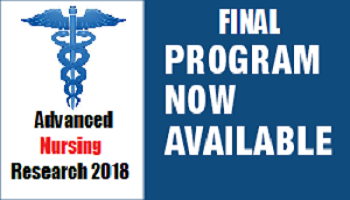
Denise A Smart
Washington State University, USA
Title: Evaluating sleep hygiene in military field settings
Biography
Biography: Denise A Smart
Abstract
Statement of the Problem: While much is known about the science of sleep, little is known about National Guard medical personnel and their sleep habits. This study explores sleep during the transition from civilian to military duty, and during a training exercise that simulated real-world responses. We examined sleep deprivation in National Guard medical personnel who train and deploy to man-made and natural disasters. The population in this study had dual roles in that they live and work in civilian communities and train and serve for specific military missions when called to respond to disasters that exceed local resources. Our secondary aim was to describe the unique aspects of conducting research in military field settings.
Methodology: A multi-site, longitudinal study using generalized linear mixed models was used to explore the relationship between sleep hygiene, self-reported sleepiness, and any changes in cognitive effectiveness and critical skills performance over the course of the training exercise periods.
Findings: During the transition and disaster exercise period, participants’ sleep quantity dropped significantly from 7.2 hours at baseline to 5.9 hours and cognitive effectiveness dropped from 91% at baseline to 87%. Approximately 1/3 of the sample reported being very sleepy at the beginning of each training day, with 2/3 of the sample experiencing sleepiness by the end of each training day. Sleepiness was associated with decreased performance on critical skills performance over the course of the training exercise periods.
Conclusion & Significance: Conducting research with military medical personnel requires planning, and logistical coordination with contingencies and flexibility of research team. By measuring participant sleep using actigraphy data, sleep diaries, and sleepiness measures we were able to assess the impact of sleep deprivation on participant critical skills performance during the training exercise. Recommendations are made for sleep hygiene and strategies for improving sleep in austere environments.

